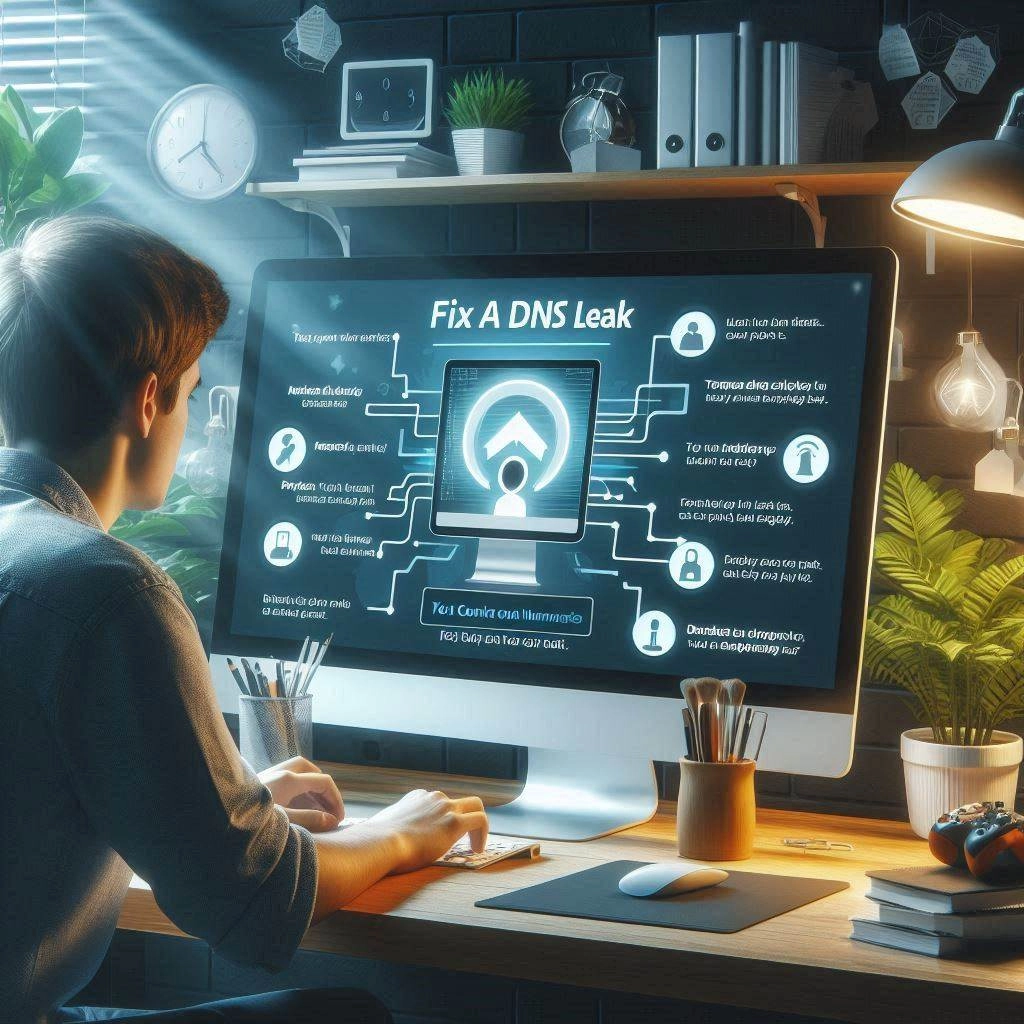How to Fix a DNS Leak
Content of the article

A DNS leak is a problem that many VPN users face. It occurs when DNS (Domain Name System) requests are processed by the local ISP instead of being routed through a secure VPN server. This leads to a loss of anonymity, as the user's real IP address becomes visible.
Basic steps to fix a DNS leak
Fixing DNS leaks is important to ensure privacy online. Below are the basic ways to solve this problem, relevant for Windows users and those using OpenVPN.
The reasons for DNS leaks can be structured as follows:
- Incorrect VPN configuration. If your VPN service is configured incorrectly, requests may bypass it.
- ISP DHCP servers. DHCP can overwrite DNS settings when reconnecting.
- No support for the "block-outside-dns" feature. Older versions of OpenVPN don't have automatic protection against DNS leaks.
To fix existing leaks, you can use the recommendations below.
Users of OpenVPN version 2.3.9 and higher have the ability to add a line to the server configuration file in order to prevent DNS leaks: block-outside-dns. This command blocks all DNS requests that are not routed through the VPN.
In cases where the OpenVPN version is lower than 2.3.9, do the following:
- Assign static network addresses before establishing a connection to the VPN, if DHCP is used.
- Disable DNS settings after establishing a connection.
- Then return the VPN configuration to DHCP.
For Windows (XP/Vista/7) users, automatic protection against DNS leaks is provided using scripts. Download and install dnsfixsetup.exe. When connecting to the VPN, a batch file is launched that performs three actions:
- Switching to a static network address before connecting.
- Removing DNS settings for all network interfaces except TAP32.
- Returning original settings after disconnecting.
For those who prefer to manually eliminate possible leaks, you can follow these steps. First, open the command line with administrator rights. Then determine the interface name by running the command: netsh interface show interface. After connecting to the VPN, we execute several directives: clear the DNS cache using ipconfig /flushdns, disable DNS settings via netsh interface IPv4 set dnsserver "Local Area Connection" static 0.0.0.0 both, and check for DNS leaks using an online service like DNSLeakTest. When the VPN is disabled, restore the original DNS configuration using the command netsh interface IPv4 set dnsserver "Local Area Connection" dhcp, and then flush the DNS cache again with ipconfig /flushdns.
Using proven methods to fix DNS leaks helps users maintain privacy and security online.
How to Prevent DNS Leaks
To prevent DNS leaks and avoid fixing them in the future, the user needs to take steps to ensure the VPN works properly in advance:
- Using a reliable VPN service. The most important thing is to choose a VPN service that natively supports DNS leak protection. Many modern VPN providers already offer built-in leak prevention features. Pay attention to the following aspects: built-in DNS leak prevention and automatic replacement of DNS servers when connecting to a VPN.
- Using your own DNS system. To reduce the likelihood of leaks, you can manually configure a DNS server or choose a secure option from a third-party provider. Such solutions encrypt DNS requests, which makes them difficult to leak or unauthorized use by the provider.
- Enabling the "Kill Switch". Many VPN services offer a Kill Switch function that automatically disconnects the Internet if the connection to the VPN is interrupted. This ensures that traffic does not go through unsecured channels and no DNS leaks occur.
- Regularly check for DNS leaks. Even if all precautions have been taken, it is important to regularly check the connection for DNS leaks. This can be done using online services such as DNSLeakTest or similar platforms.
- Disabling IPv6. Some VPN services do not support IPv6, which can lead to DNS leaks via this protocol. If your VPN does not support IPv6, disable it on your device or router to prevent leaks via this channel.
If you follow these recommendations, you can easily protect your Internet traffic from DNS leaks and maintain anonymity.
Private VPN server: no vulnerabilities and IP-leaks
Using a private VPN server with full control over DNS settings significantly reduces the risk of all kinds of leaks and vulnerabilities, since the resource is used only by you and no one else.
To be sure of the protection of your data, choose to buy a private VPN server on Private VPN server. Unlike more affordable solutions, this server is customized to your needs, reducing the risk of cyber attacks to zero.